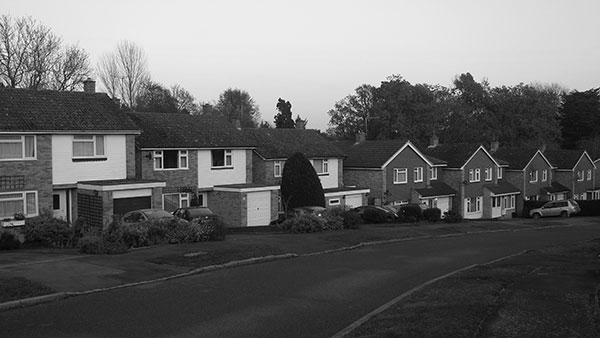Robin Hambleton FRSA argues that Covid-19 is opening up promising political possibilities for radical place-based innovation and experiment.
The RSA’s Bridges to the Future initiative highlights how local communities, up and down the country, are responding in an imaginative way to current societal challenges. There has, in fact, been a spectacular upsurge in community-based caring and social support during this last year or so. Across the world we encounter heart-warming stories of how local communities have reacted to the various challenges thrown up by Covid-19.

With great speed and imagination local authorities and activists have responded to the disruption of local food supply chains, taken steps to protect the most vulnerable in society and are continuing to engage in all manner of creative problem-solving activities at the local or hyper-local level.
This awful contagion has brought home to many people that we are highly interdependent. The pandemic has shown that the ‘What’s in it for me?’ mindset that has dominated market-oriented approaches to public policy since the 1980s, does not actually build cohesive societies. On the contrary it has resulted in a widening of economic, social and racial inequality as revealed by professor of epidemiology, Sir Michael Marmot’s research demonstrating that we need to Build Back Fairer.
There is growing recognition in social movements like Extinction Rebellion and Black Lives Matter, as well as in society at large, that the Covid-19 calamity demands that a new dominant mindset needs to become the lodestar for the future, one that asks ‘How do we solve these problems together?’
Research carried out for my new book, suggests that three closely related themes should receive far more attention in ongoing efforts to develop sound post Covid-19 recovery strategies for the UK: place, devolution of power and civic leadership.
Why place matters
To claim that place matters could seem to be an odd, even out-of-touch, way of viewing the modern world. Some may feel that, because the internet and mobile phone technologies have transformed our abilities to communicate across space – not to mention the way globalisation has altered economic and social relations across the entire planet – talking about the importance of place is to swim against the tide.
They would be wrong. The Covid-19 pandemic has reminded us that much of life remains, and will always remain, stubbornly place-dependent. There are three main reasons why place should be much more prominent in public policy.
First, place forms an important part of our identity as human beings, it contributes to our sense of belonging. To argue for recognising the significance of place for our psychological wellbeing is not to contest the value of personal connections made digitally across space. Second, place provides the spatial units for the exercise of democracy. Elected local authorities provide the democratic building blocks that underpin nation states and, ultimately, international democratic institutions. Third, it is self-evident that places are different and it follows that effective policies must be capable of responding to the different needs of different localities.
The power of local initiative
Adopting an international perspective reveals that the super-centralised approach to policymaking, the emblematic feature of the UK government’s strategy for responding to the Covid-19 pandemic, has caused needless deaths.
Take Germany as an example. In the UK the Covid-19 death rate, at 1,753 per million people, is more than twice the death rate in Germany (805). Various factors explain why Germany is continuing to be far more successful than the UK in saving lives: the country was better prepared, has a better resourced health care system, and was quick to introduce an effective Covid-19 test and trace system.
In addition, Germany has the advantage of a decentralised power system. Local authorities have the constitutional right to do things differently and this authorises elected local councils to co-create all kinds of imaginative solutions. The existence of substantial local power has enabled local leaders to act swiftly and in close collaboration with other civic actors and, in my book, I present the City of Freiburg as an inspirational example.
Place-based leadership
In an earlier RSA post I explained how the RSA Inclusive Growth Commission was right to argue that, if you want to bring economic, social and environmental objectives together in practice, this can only happen locally.
I provided a conceptual framework showing how, in an ideal situation, actors from the five realms of place-based leadership should act as one in delivering locally agreed civic goals. The five realms, which overlap, are political leadership, public managerial/professional leadership, community leadership, business leadership and trade union leadership.
In the last five years Marvin Rees, Mayor of Bristol, together with councillors and local civic leaders have used this model of place-based leadership to develop a One City Approach. This innovative way of working has energised civic leaders in the city – from in and outside the state – to co-create a far-reaching 30-year One City Plan. This visionary plan, which is reviewed annually, aims to co-create a fair, healthy and sustainable city, with all of its actions mapped against the 17 UN Sustainable Development Goals.
Since 2016 a plethora of new place-based initiatives have been launched. These range from the Feeding Bristol programme designed to provide free school meals to children from families living in poverty during the holidays, through to the imaginative Period Friendly Bristol initiative, co-created to bring period dignity to many women and girls denied access to menstrual products, to the development of a wide ranging One City Economic Recovery and Renewal Strategy. To drive forward the delivery of the One City Plansix cross-sector boards, as well as a City Leaders Group, were set up.
Each year, the European Union invites cities to put themselves forward for the award of European Capital of Innovation (iCapital). In September 2019, the Bristol One City Approach ensured that Bristol was recognised as one of the six most innovative cities in Europe.
Bristol is not alone in advancing the cause of collaborative local governance. Across the UK, as well as in many other countries, we can see that local activists and civic leaders living in particular communities and localities have responded to the Covid-19 emergency with great care and compassion. Successful post Covid-19 recovery strategies depend not just on listening to the voices of these place-based leaders, but also in ensuring they have sufficient fiscal and legal power to address the challenges their communities now face.
Robin Hambleton is emeritus professor of city leadership, University of the West of England, Bristol and Director of Urban Answers. His new book is Cities and communities beyond COVID-19. How local leadership can change our future for the better, published by Bristol University Press.
Related articles
-
Tactics for understanding post-Covid-19 places
Comment
Carl A. Smith FRSA
Carl A. Smith FRSA on how the practice of place drawing will help us understand post Covid-19 places.
-
Empowering communities through Intensive Engagement
Comment
Richard James FRSA
As the Covid-19 pandemic and ensuing economic crises continue, empowering communities will be more important than ever, argues Richard James FRSA.
-
Inclusive design
Comment
Sarwat Tasneem FRSA
Sarwat Tasneem FRSA on the power of conscious design on productivity and wellbeing.



